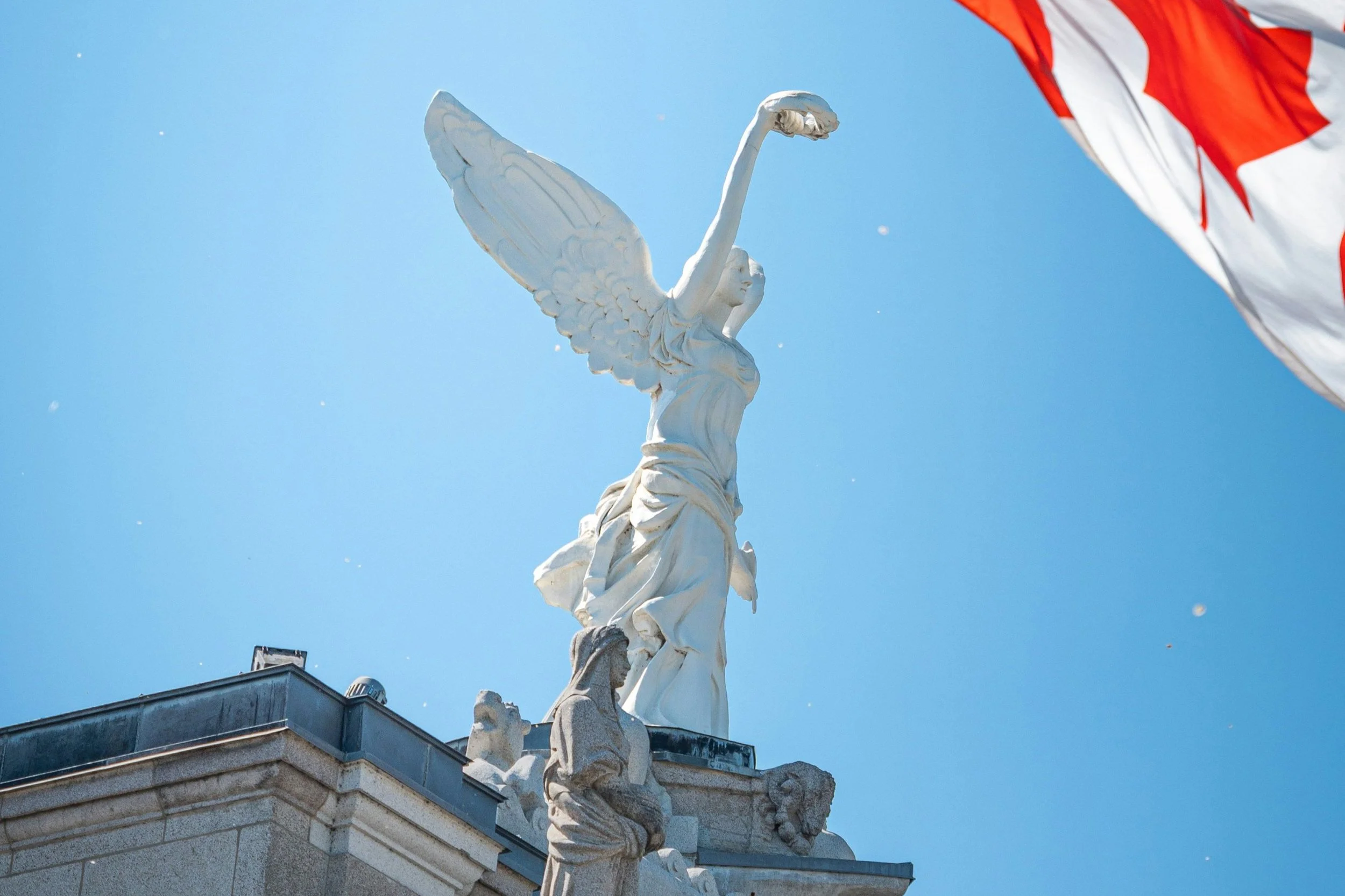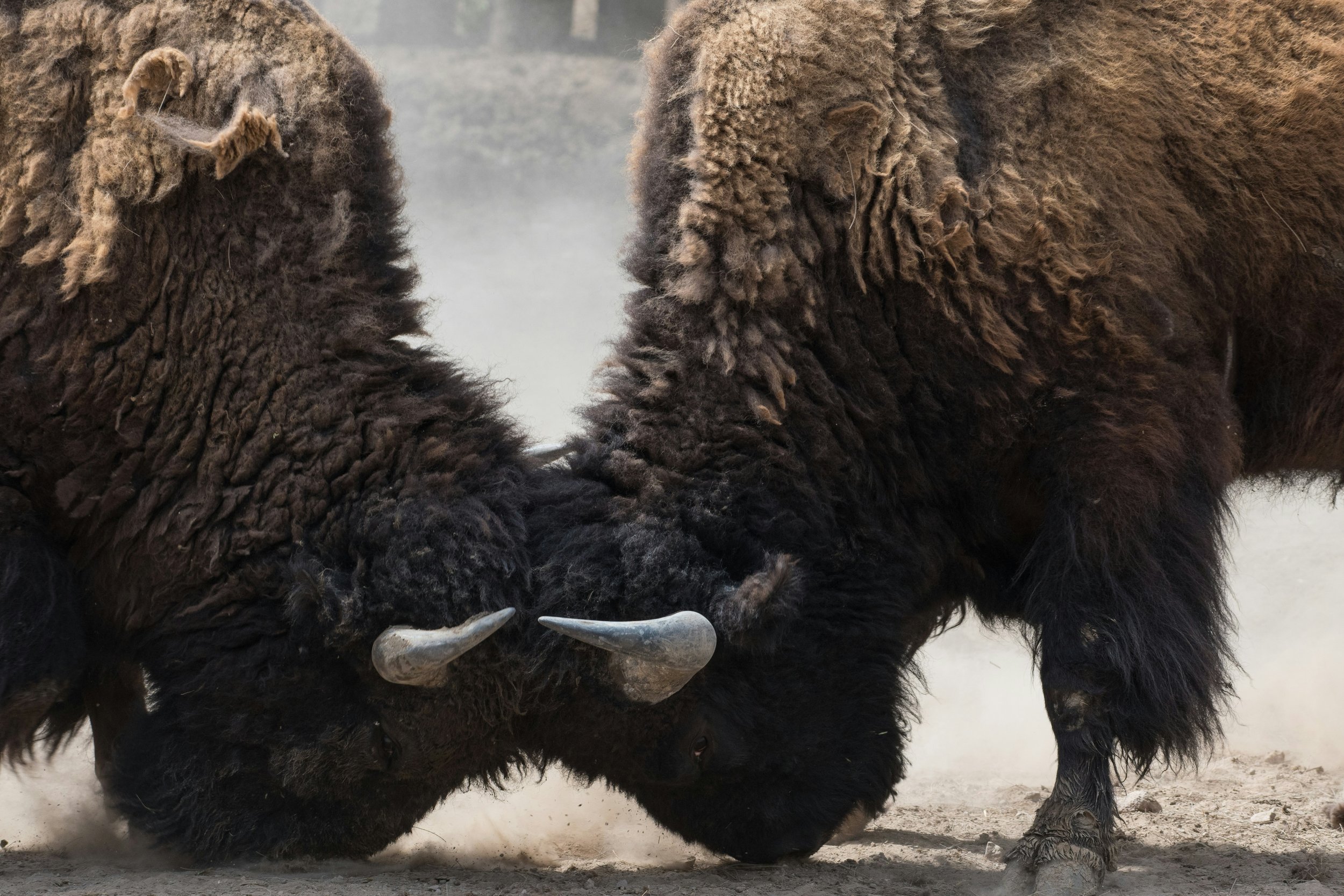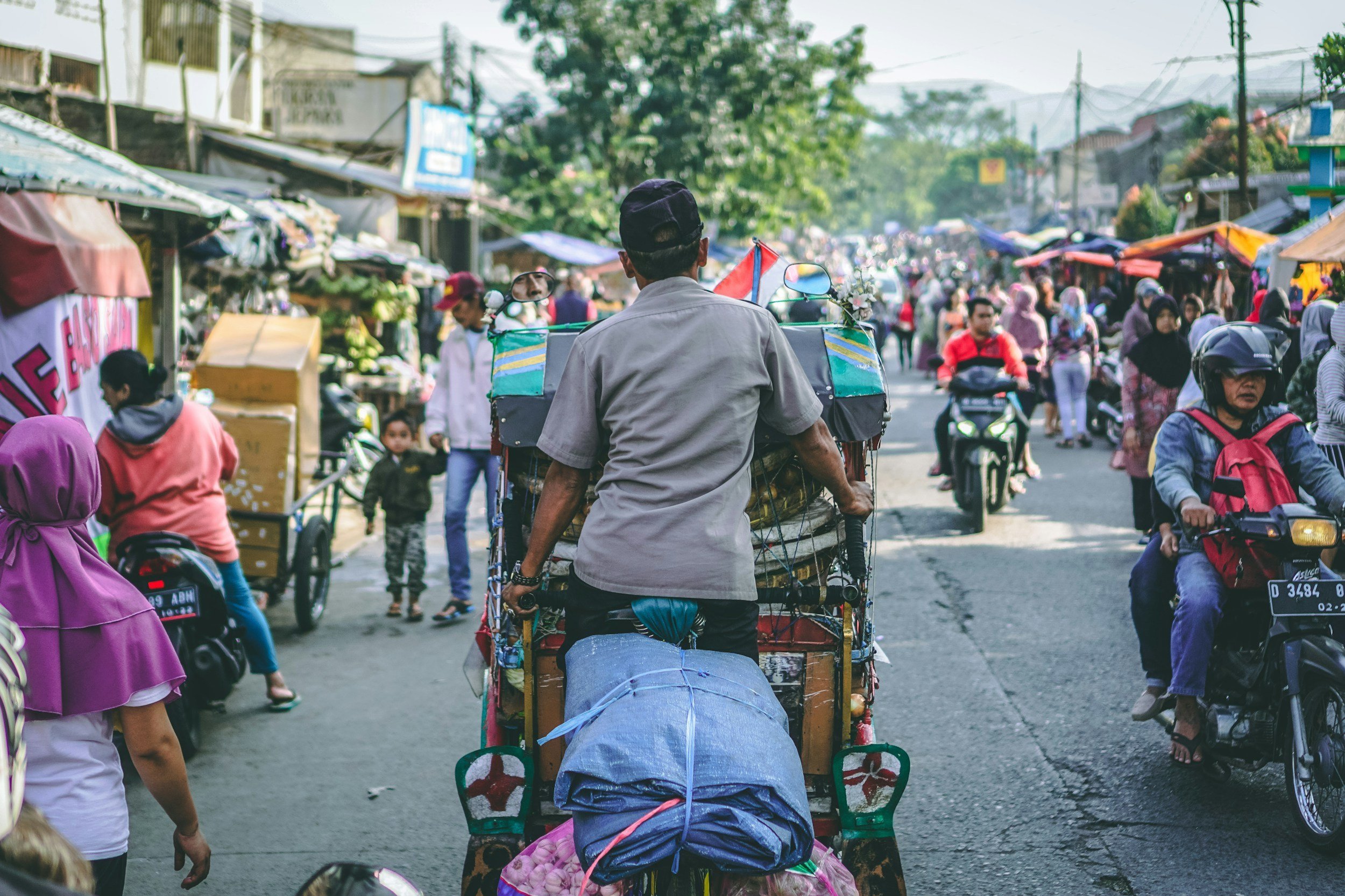
On the Frontlines of Democracy
Podcast Series
About
This is On the Frontlines of Democracy, a podcast about the challenges facing democracies across the world
Around the world, democracy faces serious challenges, old and new. Can we protect individual rights and the rule of law in an era of popular mistrust, severe partisanship and resurgent nationalism? How can our democracies reduce inequalities of power, wealth and status, defend deep diversity and confront climate change in the new digital age? Can we develop innovative strategies to revitalize civic engagement, empower public institutions and resist autocratic threats? How can we support the expansion of democracy, in an evolving post-western order, without committing the mistakes of the past?Listen on these platforms:
Available Episodes
The Political Economy Underlying the US-China Clash with Ho-Fung Hung
Host Sanjay Ruparelia speaks with Ho-Fung Hung, the Henry and Elizabeth Wiesenfeld Professor in Political Economy at Johns Hopkins University, to discuss contemporary understandings of China and how they're shaped and influenced by China's storied past. Their conversation draws on themes from Ho-Fung’s upcoming book, The China Question: Eight Centuries of Fantasy and Fear, set for release in February 2026. The two explore how historical perceptions, geopolitical anxieties, and longstanding fantasies about China have shaped global engagement with the country over the centuries. They trace how these dynamics continue to echo in contemporary politics and how foreign notions and policies interact with and influence China.
The Making and Unmaking of American Power with Ed Luce
U.S. national editor and columnist at the Financial Times, Edward Luce, joins host Sanjay Ruparelia to discuss the topic of latest book: Zbigniew Brzezinski. They cover his life, legacy, as well as lessons learned from Brzezinski in global affairs and national security.
Globalization and the New Geography of Inequality with Branko Milanovic
Host Sanjay Ruparelia speaks with economist Branko Milanović about the structural forces driving economic inequality around the world. Milanović explains how globalization has narrowed income gaps between countries while widening them within nations. He reflects on the political consequences of these shifts, including the rise of plutocracies and the erosion of middle-class stability. The conversation explores proposals to reduce inequality—such as pre-distribution policies, changes to taxation, and rethinking access to education. It also examines the dilemmas surrounding global migration and the idea of the “citizenship premium.”
From Law Student to Chief Justice - The Role of the Judiciary in Democracy with Beverley McLachlin
Host Sanjay Ruparelia speaks with former Chief Justice Beverley McLachlin about the role of courts in upholding constitutional democracy. McLachlin reflects on fairness and moral intuition in making judgments. She also discusses the evolution of the “living tree” doctrine and efforts to build consensus and transparency at the Supreme Court. The conversation ends with a look at the balance of power among branches of government and the threats posed by leaders who challenge constitutional norms.
Leadership, Diplomacy, and Democracy with Lloyd Axworthy
Host Sanjay Ruparelia and the Honourable Lloyd Axworthy sit to discuss Axworthy’s life in politics, which culminated in his role as Minister of Foreign Affairs under Prime Minister Jean Chrétien. Recorded just a day before the 2025 Ontario general election and eleven days ahead of the 2025 Liberal Party of Canada leadership election, they also discuss how Canada’s role on the global stage has evolved over the years and the future of Canadian politics.
Wild Democracy: Anarchy, Solidarity, And Ruling the Law with Anne Norton
Host Sanjay Ruparelia and Anne Norton sit to discuss Norton’s book Wild Democracy: Anarchy, Courage, and Ruling the Law, which reimagines freedom and democracy as expansive and inclusive. They discuss how anarchy, rather than being chaotic, can be a nursery for democracy. Norton argues that authoritarianism is a greater threat than anarchy and examines the qualities necessary for a truly free and democratic society. Their conversation also touches on the nature of rights, the responsibility to resist unjust laws, the role of institutions, and why democracy must remain "wild" to allow space for dissent and change.
Conversation in an Age of Rage with Carol Off
Host Sanjay Ruparelia sits with Carol Off to discuss her book, At a Loss for Words: Conversation in an Age of Rage, which explores the evolving meanings of political words like freedom, democracy, choice and truth. She argues that these words have been weaponized by the far right, emphasizing personal liberty over societal responsibility. Off critiques the rise of populism and demagoguery, highlighting the impact of billionaires on political discourse. She advocates for a return to rational language and transparency in journalism, stressing the importance of understanding historical context and the dangers of irrational debates.
Reflecting on Cold War Liberalism with Samuel Moyn
Host Sanjay Ruparelia and Samuel Moyn discuss the evolution of liberalism, particularly during the Cold War. Moyn says that Cold War liberalism betrayed the emancipatory ideals of earlier liberals by focusing on negative liberty over positive liberty. He also highlights the contradictions in Cold War liberal thought, such as their pessimism about global freedom and their support for Israel. He also suggests that modern liberalism must reinvent itself to address current challenges, including rising inequalities and authoritarian populism, by revisiting and reviving the emancipatory ideals of historical liberalism.
Building Solidarity in an Age of Insecurity with Astra Taylor
In this week’s episode, we speak with Astra Taylor, a critically acclaimed writer, filmmaker and organizer about practicing solidarity in an age of insecurity. Taylor discusses insecurity as a structural feature of capitalism and advocates for solidarity, which fosters collective responsibility and mutual obligation.
India's Surprising 2024 Election with Yogendra Yadav
In this week’s episode, we speak with renowned public intellectual and political activist Yogendra Yadav about India’s 2024 national election. We’ll discuss the BJP’s surprising losses, the continued dominance of Prime Minister Narendra Modi, and the shifting political landscape, including the rise of lower caste support for Hindu nationalism. Yogendra shares his thoughts on the erosion of Indian democracy and how a new form of republican politics can help revive its original constitutional values.
South Africa’s political crossroads with Sithembile Mbete and Lawrence Hamilton
In this episode, we sit down with Dr. Sithembile Mbete and Professor Lawrence Hamilton to shine a light on South Africa’s political landscape following the 2024 elections. While the ANC achieved political freedom thirty years ago, it failed to secure economic justice for the majority. We discuss why many in the Born Free generation view Mandela’s compromises as a betrayal and explore a critical take on the 1996 constitution.
We also dive into the 2024 elections, the ANC’s declining popularity, and the rise of offshoot parties. How does political instability, alongside the challenges of inequality, corruption, and gender representation, shape South Africa’s future? Join us to find out more.
The Rise and Decline of Erdogan with Kaya Genç
Host Sanjay Ruparelia sat down with Kaya Genç, a scholar, writer and journalist and the Istanbul correspondent for the Los Angeles Review of Books. His latest book, The Lion and the Nightingale: A Journey Through Modern Turkey, weaves a narrative of the current political climate in Turkey after the terror events and failed coup in 2016 through the personal stories of regular Turkish people. The “lion” represents Turkey’s past, its militant strength and power; while the “nightingale” conjures a song, representing Turkey’s rich cultural history of art, literature and romance. In this episode, Dr. Genç talks about populism and the rise of Erdogan, the similarities between militant secularism and Islamic extremism, and the resurgence of the once-dormant Turkish left.
Protecting Canadian Democracy From US Influence With Rob Goodman
Host Sanjay Ruparelia sat down with Rob Goodman, an assistant professor of politics at the Toronto Metropolitan University. An award-winning author and former political speechwriter, his most recent book is Not Here: Why American Democracy is Eroding, and How Canada Can Protect Itself. In this episode, they discuss how founding myths between Canada and the United States have shaped the moral character of their respective governments and if Canada can avoid the rise of right-wing populism we've witnessed in the United States.
What We Can Learn from Indonesian Democracy with Dan Slater
Host Sanjay Ruparelia sat down with Dan Slater, the James Orin Murfin professor of political science at the University of Michigan in Ann Arbor where he directs the Center for Emerging Democracies. Dan has written a series of essays and books on major issues in Southeast Asia, the latest of which is a book with Joseph Wong called From Development to Democracy: The Transformations of Modern Asia. On March 20, Prabowo Subianto was officially declared the next president of Indonesia. In today’s episode, Dan illuminates that election and Prabowo’s victory by discussing topics such as political power-sharing among elites, the enduring popularity of former president Jokowi, and what Indonesian politics can teach the world about non-Western democracies.
Diverging Paths of Ukraine and Russia with Mario Popova
Host Sanjay Ruparelia sat down with Maria Popova, an associate professor of political science at McGill University, where she holds the Jean Monnet Chair. Dr. Popova is a widely noted scholar of corruption, autocracy and populism in post-communist Europe, and recently released her book Russia and Ukraine: Entangled Histories, Diverging States which she co-authored with Oxana Shevel. As Ukraine enters its third year of the war with Russia, Maria joins us to discuss Russia and Ukraine's divergent paths after the fall of the Soviet Union, the two countries’ conflicting memories of the Holodomor, and Russia’s motivations in Ukraine that extend beyond NATO’s encroachment.
Rescuing Social Democracy with Olle Tournquist
Host Sanjay Ruparelia interviews Olle Tornquist, professor emeritus of political science and development research at the University of Oslo. Professor Tornquist’s research focuses on the rise and decline of second and third-wave democracy in Scandinavia as well as the Global South. This episode explores the power of participatory socialism in democratization, the challenges of applying the Scandinavian model elsewhere in the world, and the limitations of NATO in thwarting far-right authoritarianism.
The Politics of Remembering the Chilean Coup with Marcela Ríos Tobar
Host Sanjay Ruparelia talks with Marcela Ríos Tobar, a visiting scholar at the Latin American Center at the University of Oxford, and the former Minister of Justice and Human Rights in Chile. Their discussion coincided with the 50th anniversary of the Chilean coup, an event that continues to haunt the country’s democratic institutions. In this episode, Dr. Ríos Tobar discusses the external forces that made the establishment of socialism before 1973 so difficult, as well as the lingering effects of the Pinochet dictatorship on Chilean politics.
On the Frontlines of Democracy - Season 2 Trailer
On The Frontlines of Democracy is back! Join us this season as we unravel the complexities, celebrate the achievements, and navigate the dangers faced by democracies across the globe. Make sure to hit the subscribe button so you don't miss an episode!
US-China Conflict with Kristen Hopewell
Sanjay Ruparelia is joined by Kristen Hopewell, the Canada Research Chair in Global Policy at the University of British Columbia, to discuss the current conflicts in international trade. In this episode, Hopewell explains the stalemates in the World Trade Organization, particularly the escalating conflict between China and the U.S. in trade negotiations. Although China is still considered a developing country, its rising economic status has halted the U.S.’s uncontested dominance.
Democratization in Asia-Pacific with Joseph Wong
Sanjay Ruparelia is joined by Joseph Wong, a professor of political science at the University of Toronto and the Roz and Ralph Halbert Professor of Innovation at the Munk School of Global Affairs. Professor Wong discusses why it’s better for authoritarian regimes to transition to democracies when they’re strong, rather than when they are weak. Although it may seem counterintuitive, Wong argues that autocratic governments have an incentive to transition to democracies when they’re most powerful, rather than when they’re on the brink of collapse.






















